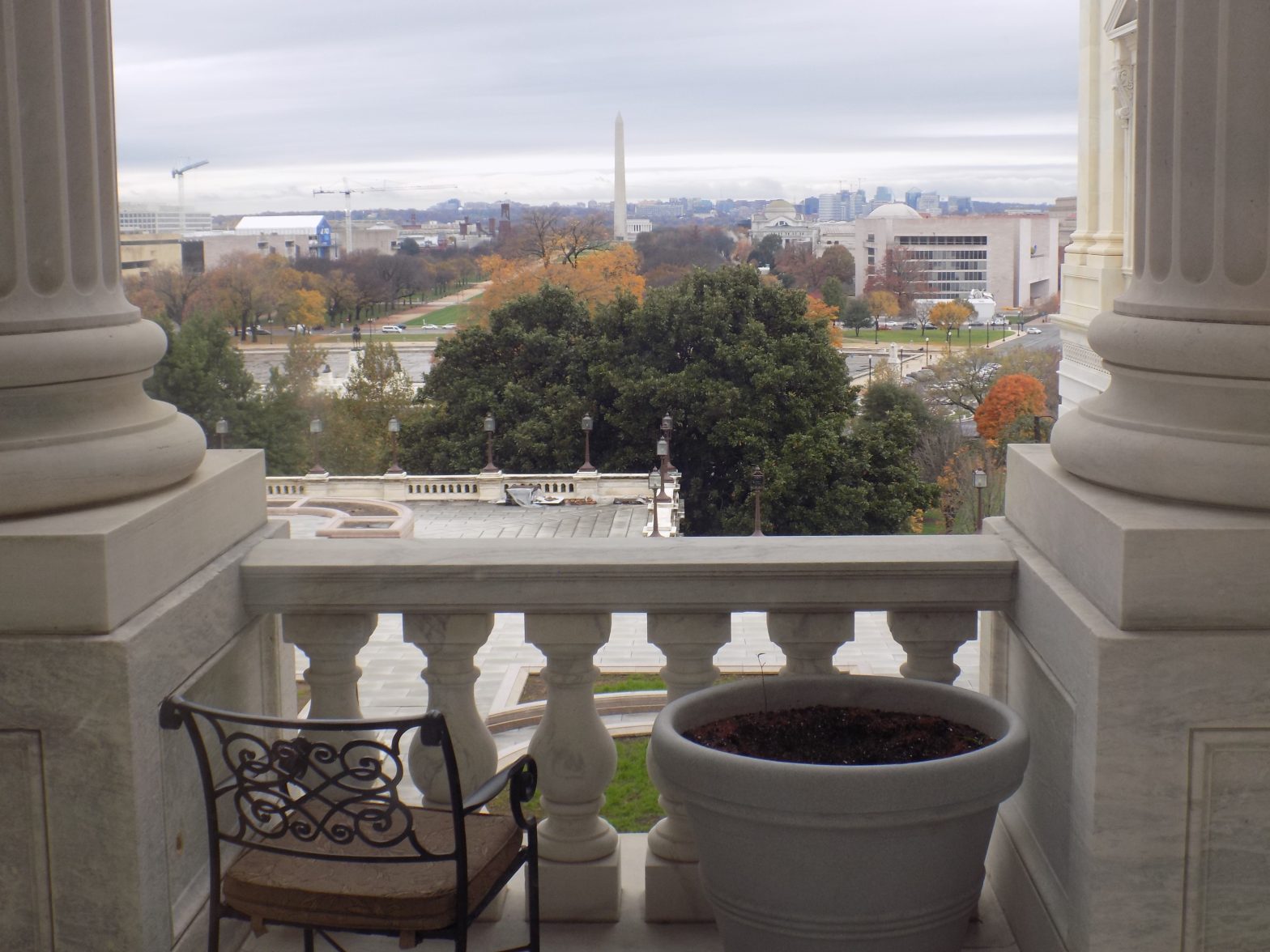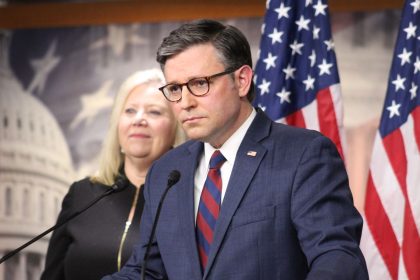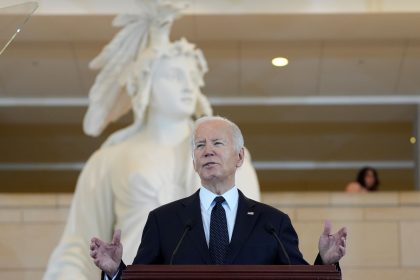Trump Era Court Battles Weaken Congressional Power

WASHINGTON — Congress will emerge from the Trump administration with weakened power to check a president or oversee the operation of the federal government, the most consequential fallout experts see for lawmakers after four years of nearly constant high-profile courtroom showdowns with a defiant president.
Democratic lawmakers often had no other recourse than to go to court because of President Donald Trump’s approach. Once there, lawmakers fell short or didn’t get what they sought — and it doesn’t bode well for similar oversight efforts in administrations to come.
Democrats couldn’t pursue their lawsuit accusing Trump of unconstitutionally benefiting financially from his presidency. They are still trying to force a White House lawyer to testify before the House Judiciary Committee. They haven’t gotten grand jury materials from the special counsel report on Russian interference in the 2016 election. They are still trying to stop Trump’s transfer of money to get around congressional appropriations and build a barrier along the U.S.- Mexico border.
It might take decades to reveal which Trump-era legal cases will be the most consequential for Congress, such as those on presidential power in immigration, a case about the 2020 census now at the Supreme Court or other policy areas. Sometimes a case that seems less important now might become consequential in unforeseen ways down the road, legal experts say.
But for now, experts point to the Supreme Court’s decision in the House Democrats’ effort to obtain Trump’s personal business and tax records from an accounting firm and banks.
House committees first subpoenaed that information in April 2019. They still don’t have it and the case is still working its way through the courts. Along the way, the Supreme Court for the first time put limits on congressional power to subpoena a sitting president’s personal and business information.
Speaker Nancy Pelosi said at the time that the July decision — which meant Congress for now couldn’t see the records — actually backed congressional oversight power, preserved the checks and balances between the legislative and executive branches, and kept the idea that a president is not above the law.
Outside experts aren’t so rosy. Josh Chafetz, a professor at Georgetown University Law Center who wrote a book about legislative authority and separation of powers, said that the 7-2 decision in Trump v. Mazars was a new high-water mark for the Supreme Court’s skepticism about congressional power.
Justices from both ideological wings in that decision “evinced a shocking level of disrespect for congressional oversight and Congress generally,” Chafetz said. “That attitude, more than anything about the details of the case itself, suggests that Congress will face a skeptical Supreme Court across a range of issues for years to come.”
And there are worries in the details as well. Thomas Hungar, a former House general counsel who left that role in January 2019, said he fears the decision will make it significantly more difficult for Congress to exercise its oversight powers. Much of the decision rests on broader separation-of-powers principles that arguably apply with even greater force when Congress seeks information from the executive branch, he said.
” The Department of Justice will undoubtedly capitalize on that reasoning in future disputes with Congress, and courts may well conclude that it imposes meaningful constraints on Congress’s oversight powers generally,” Hungar, now a partner at the Gibson, Dunn & Crutcher law firm, said.
Lower courts previously assumed a congressional subpoena should be enforced unless there was no reasonable possibility that the information sought would be relevant to any facially valid legislative purpose, Hungar said.
But the Supreme Court held that congressional subpoenas implicating separation-of-powers concerns must be “no broader than reasonably necessary to support Congress’s legislative objective.”
Steve Vladeck, a University of Texas law professor, said the Trump era litigation highlighted the extent to which courts “will increasingly resolve ambiguities in favor of the president specifically, or the executive branch more generally.”
Courts are requiring Congress to pay attention to the fine details when writing laws or issuing subpoenas, Vladeck said, “And that may make sense in the abstract, but it’s a rather idealized view of how Congress actually works.”
Another case that hampered congressional power came from early in the administration, when the Supreme Court upheld the third version of Trump’s so-called Muslim ban that limited immigration from certain countries.
The 5-4 ruling strengthened a doctrine that gives broad deference to the president on immigration, even when it comes to policies that might be struck down in other areas of government because they trample on constitutional rights, said Ilya Somin, a law professor at George Mason University who focuses on constitutional law, federalism and migration rights.
“It sets up a precedent under which the executive both can exclude almost anybody he wants for almost any reason, and can violate constitutional rights in the process with very little judicial review,” Somin said. “So that’s bad precedent that I think will continue to have bad effect in the area of immigration policy.”
How bad depends to some extent on what future presidents choose to do, Somin said, as well as the outcome of related challenges to Trump actions in lower courts centered on nondelegation, or a limit to how much of its legislative power Congress can hand over to the executive branch.
The House Judiciary Committee in March advanced a bill that would restrict a president’s authority in this area.
Some lower court rulings have strengthened Congress and state legislatures, Somin said.
Lower courts have rejected Trump’s push to withhold federal funding for “sanctuary” jurisdictions that decline to assist federal authorities in enforcing immigration laws. The Trump administration has asked the Supreme Court to overturn some of those decisions, but President-elect Joe Biden’s administration is unlikely to continue that fight.
Somin said those cases reaffirmed and strengthened the principle that the president can’t impose conditions on grants to state local governments unless those conditions have been authorized by Congress in advance.
But even apart from the cases, Trump’s “see you in court” strategy might weaken Congress if future presidents take the same combative stance.
If courts don’t act quickly, there is a lot of room for future administrations to delay these cases and run out the clock, said Ashwin Phatak, an appellate litigator at the Constitutional Accountability Center, which has represented Democratic lawmaker interests in several cases in the past four years.
Cases can raise important questions and issues that go to the heart of Congress’s powers, Phatak said. But if courts can’t resolve them within the two years that a congressional term runs, it means Congress can’t get materials it needs as part of legitimate congressional investigations.
An important lesson is that lawmakers in the future should move as quickly as possible to get these cases into court when they know that there’s going to be this kind of obstruction from an administration, Phatak said.
“If a presidential administration can delay a case for two years and run out the clock,” Phatak said, “that’s really going to make congressional oversight a congressional power in name only, and not one that actually has teeth.”
___
(c)2020 CQ-Roll Call, Inc., All Rights Reserved
Distributed by Tribune Content Agency, LLC
























